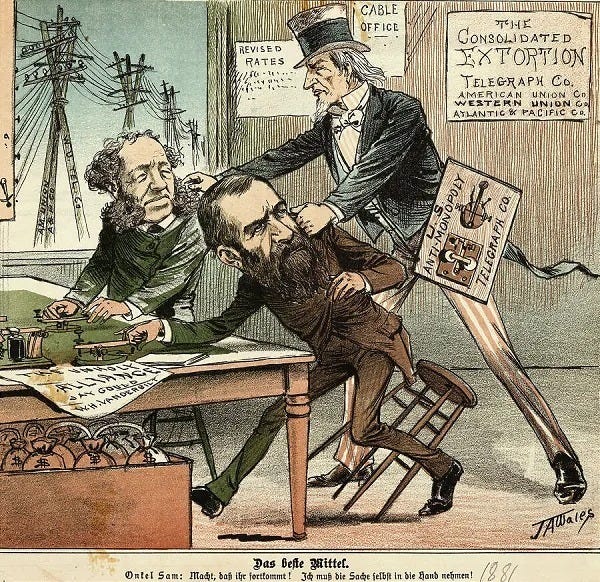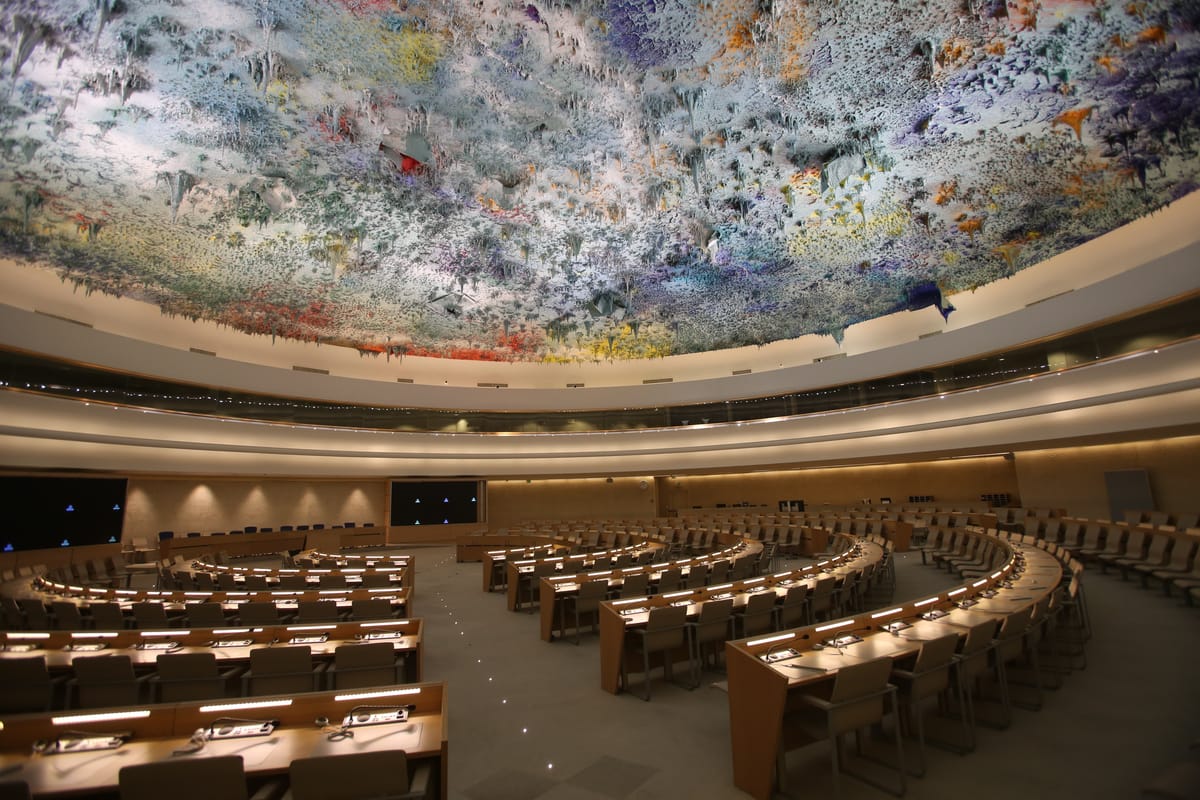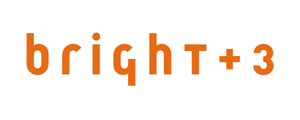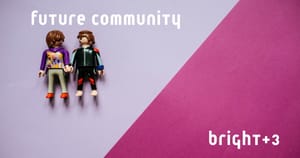👋 Hello to folks who are new here. It's good to have you along Katarina, Craig, Ashley, Katy, Hannah, Justin, Michael, Greta, Maggie and Kareem.
Reply and say hello if get a moment. Happy to answer any questions, hear what you're working on or set up a time to check in.
To Do: Read 32 Types of Newsletters (my proposed taxonomy of email newsletters), Newsletter Nerd Club, and check out 44 new Future Community Jobs below👇
What do we really want from AI?
This question keeps knocking around in my head. Especially when I see conversations about AI standards, practices, products and ethics flooding my network of folks working in community building, social change, nonprofits, and campaigns.
Is there a problem we're trying to solve? Was there something about how or why we did our work five or ten years ago that was broken and could be fixed by AI?
The problems that colleagues and I were striving to tackle then are still here. We want to bring people into movements. We seek to help people identify and use tools that connect them to each other their power–both individually and as groups.
At organizations, we want people to tap into the flow of information so they can use all this info–text, visual, data, social, print, audio and more–to craft and tell stories that support movements for equity, environmental health, and people power.
So many conversations about AI in/by/for/with nonprofits and campaigns are just appendices to the same questions and problems as before:
- How do we reach more people?
- How do we get people information faster?
- How do we get the "right" information to the "right" people so we save their time and our resources?
I think we're mostly stuck on implementation and how to make it faster, cheaper, more efficient, more scalable. Meanwhile we're assuming that our mission is meaningful, shared by others, or just inherently good and just.
I've had 80 or 90 one to one conversations over the past year with people looking for work, feedback, or just ideas about jobs, projects and people in nonprofit and communications leadership.
On the whole, these conversations have been inspiring. And a little heartbreaking. I've talked with some of the smartest people I've ever met. All are people with big ideas, great experience, and (for the most) not nearly enough stability or support.
People (and organizations) don't need AI to solve things, speed things up, be more efficient, come up with better ideas.
People need time to work together, talk with each other, share ideas, be vulnerable, build trust.
This isn't about AI being good or bad. Or saying organizations should or shouldn't use it. But I wonder if we're asking the wrong questions altogether. It's not could AI do this? but rather is this helping people at all?
We've been here before. Twenty years ago, nonprofits acquired the ability to grow email lists. They could quickly ask for money. And they could ask people to sign a petition or send an email to their legislators.
Email, email lists and, more importantly, mass digital outreach became central to nonprofit communications, development, fundraising and organizing.
But trust in nonprofits has fallen, donor and member retention is falling, and people don't feel any more connected to organizations and one another. This isn't just a nonprofit problem. Heck, maybe it's not even a problem.
But, again, what do we really want from AI?
Bright Ideas
Chew on these for a bit.
Pay attention to who wants to control AI. A lesser discussed provision of the budget bill passed by the US House of Representatives is a measure to ban any regulation of AI for 10 years (except by the federal government). What does this have to do with the US budget? Nothing. Which is why it may not get through the Senate.
Jed Miller breaks down the implications of centralized federal control over AI in his latest Reailty Check newsletter.

Denmark's Digital Volunteers looks like an invaluable report for anyone thinking about how digital communities can work together, the resources needed, and more. [via New Public]
I'm not the only one who sees a gap between how people think about and engage with others in person and the stories that normalize extreme behavior, even hate. Tom Crompton of the UK's Common Cause Foundation writes:
There is a gulf [a values perception gap]between what people believe their fellow citizens believe in and care about, and what those citizens actually believe in and care about.
Read more in If people care deeply for one another and other living beings, why does it feel like everything is going wrong? [via Ruth Taylor]

Does all our data-driven campaigning and power building tech (see AI above) blind us to what people care about? Prominent progressive organizers argue that it's time we prioritize relationships and networks over data-driven transactional targeting. Another asks hard questions about power-building. From Micah Sifry's The Connector newsletter.

Responding to what the community needs: The Denver-based Alliance Center is hosting job search meetups to share resources, tips, leads and build networks. They're starting with two in-person sessions a month this summer.

Looking around at LinkedIn and wondering if you're the only one noticing that things are going to shit? You're not alone. Hypernormalization comes for the West.

Where you source your technology matters a great deal. Especially if you're working on international human rights issues (or anything that might potentially be noticed by the Trump administration).

Only truly amazing people read this newsletter.
Some are hiring.
Many are looking for a role.
Reach out if you want help finding or filling a role.
I have some ideas for you.
Future Community Jobs
Here are 44 roles spotted in the past week to 10 days. It's been slower than usual period. Not sure if that is reflective of a trend or just a holiday and heading into summer.
You'll find the full, updated and much longer list at Future Community Jobs. We've also added a dedicated resources page for job seekers.
Check out a beta version of Future Community Jobs. Same jobs. Different format.
It includes more info about each role, search tools and bookmarking. You can also submit jobs to include on the list.
Audience, content, journalism and news roles 🗞️
- Host, Audio : ProPublica [New York City / Remote in the US]
- Research Director : Institute for Nonprofit News [Remote]
- Senior Editor, National : ProPublica [New York City]
- Newsletter Writer : The Wall Street Journal
- Content Specialist : Flamboyan Foundation [Washington, DC]
- Editorial Growth and Engagement Journalist : Financial Times [New York City]
- Head of Product Management : The Baltimore Banner [Baltimore]
- Researcher, Election Analytics and Elections Analyst (Staff Editor) : The New York Times [New York City]
- Digital Director - Reuters : Thomson Reuters [New York City]
Communications 🗣️
- Network Communications Manager : Public Rights Project [Remote in the US]
- Head of Marketing and Communications : Agog [Remote in the US]
- Communications Director : Nonprofit Vote [Remote / Eastern time zone hours]
- Director, Democracy (DCC, Communications) : Third Plateau [Remote]
- Regional Communications Director : Solar United Neighbors [Remote in the US]
- Senior Communications Manager : Fast Forward [San Francisco]
Nonprofit Roles ⚡
- Executive Director : Business and Human Rights Resource Centre [Remote]
- Chief Executive Officer : Humane Colorado [Denver]
- Associate Director, Science and Society : Pew Research Center [Washington, DC]
- Interim Assistant Director : Standing Up for Racial Justice (SURJ) : Remote in the US
- Chief Operating Officer : The Appellate Project [Washington, DC]
- Operations Manager : Free Law Project [Remote in the US]
- Law Program Director : Alliance for Justice [Remote in the US]
- Digital Marketing Manager : Fast Forward [San Francisco]
- Regional Director, Great Lakes : American Rivers [Flexible in Minnesota, Wisconsin, Illinois, Indiana , Michigan or Ohio]
- Public Lands Counsel : National Wildlife Federation [Washington, DC]
- Executive Director : Institute for the Development of Human Arts [Remote in the US]
- Climate Resilience Organizer : Climate Resolve [Los Angeles]
- Organizing and Campaign Strategist (multiple) : Protect Democracy [Remote]
- Program Manager : FARMprenurs [Remote / California preferred]
- Director of People Power (Organizing, Advocacy, and Leadership Development) : LA Forward Institute [Los Angeles]
Fundraising and Development 💰
- Digital Fundraising Manager : Malala Fund [Washington, DC]
Foundations and Philanthropy 💸
- Program Lead : The Tow Foundation [New Canaan, CT]
- Sierra Club Foundation Director, Shifting Trillions : Sierra Club [Remote]
- Vice President, Policy and Innovation : San Francisco Foundation [San Francisco]
- Program Officer - Democracy, Gender & Racial Justice : Freedom Together Foundation [New York City]
Agencies, politics, products, projects & more 💻
- Senior Director, KEEN Effect : KEEN [Portland, OR]
- Chief of Staff and Creator Coordinator : Social Currant [Remote in the US]
- Campaign Manager : Save Maine Absentee Voting [Maine]
- Senior Vice President of Product : Open Web [New York City]
- Movement Strategy Lead : Chuffed.org [Remote in Australia]
- Head of Product Management : The Baltimore Banner [Baltimore]
- Chief Technology Officer (CTO) or Chief Product and Technology Officer (CPTO) : Atlas Obscura [New York City / Remote]
Future Community is a product of Ted Fickes and Bright+3. Reply or visit Bright+3 for more about our work.







